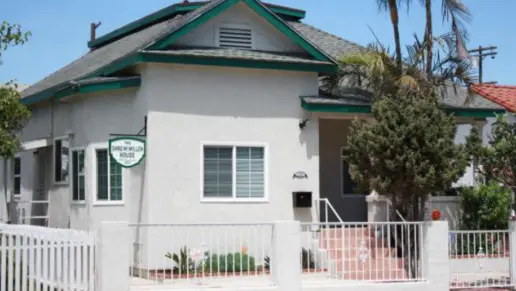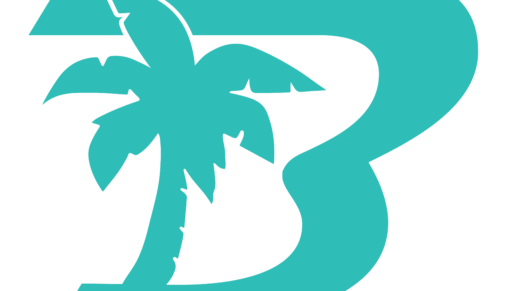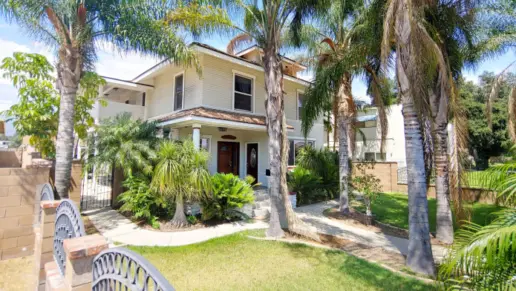When i found out my bf used I call the office to ask how is possible that he being on rehab was able to get a hold of drugs and make calls at midnight , well the girl who answer wouldnt help, at first she said I cannot tell u if his here or not , I told her I know his there ...
About Safe Refuge – East 7th Street
Safe Refuge - East 7th Street, located in Long Beach, California, provides a comprehensive array of drug and alcohol rehab services and housing programs. They also have special programs for clients with dual diagnosis needs, veterans, the LGBTQ+ community, and low income and homeless individuals. The addiction related services offered at Safe Refuge include residential, outpatient, intensive outpatient, transitional housing, and aftercare programs.
Safe Refuge’s residential program is for individuals who need a high level of care and 24/7 support. Accommodations and meals are provided, allowing for the focus to be solely on recovery. This program provides therapeutic activities in a home like community setting. The average length of stay is 30 to 180 days. Counseling and recovery groups, treatment planning, care coordination, career coaching, educational workshops, recreational and social activities, parenting and family services, HIV/AIDS services, 12 Step meetings, and drug and alcohol testing are interwoven into the treatment program.
Intensive outpatient is a step down from inpatient treatment but still functions as a highly structured recovery program. It requires participation seven days per week, 1½ to 3 hours per day. Participants are able to return to their homes in the evening and can often continue working or handling family responsibilities while receiving treatment. Educational topics related to addiction and the issues surrounding addiction are incorporated into the program. Many of the same topics covered in inpatient treatment will be addressed.
The outpatient program at Safe Refuge does not require daily participation and is considered a step down from intensive outpatient care. There are morning, afternoon, evening, and weekend programs available. The staff works with each person to help create a customized treatment plan that meets individual needs and goals. Various topics, such as anger management, life skills, and emotional recovery, are incorporated into the program.
Clients who may need some extra support may be eligible for the supportive housing program. The program can last from 6 months up to 3 or more years, depending on the level of care needed. Supportive housing is open to men, women, and families.
Individuals who complete any of the Safe Refuge treatment programs are eligible for up to one full year of supportive aftercare services, including relapse prevention, crisis counseling, on the job training, job placement assistance, and permanent housing assistance. They also provide an alumni group that meets regularly.
Safe Refuge is accredited by the Commission on Accreditation of Rehabilitation facilities. Safe Refuge offers a sliding scale and is open to Medi-Cal recipients. Insurance is not accepted, but check your coverage for any applicable out of network benefits.
Latest Reviews
Rehab Score
Other Forms of Payment
Medicaid is a state based program that helps lower-income individuals and families pay for healthcare. Medicaid covers addiction treatment so those enrolled can use their coverage to pay for rehab. When a program accepts Medicaid the client often pays very little or nothing out of their own pocket.
Private insurance refers to any kind of healthcare coverage that isn't from the state or federal government. This includes individual and family plans offered by an employer or purchased from the Insurance Marketplace. Every plan will have different requirements and out of pocket costs so be sure to get the full details before you start treatment.
Self-pay involves paying for treatment out of your own pocket. You can use savings or credit, get a personal loan, or receive help from family and friends to fund your treatment. If you don't have insurance or your insurance plan doesn't cover a specific program, self-pay can help ensure you still get the care you need.
Sliding scale payments are based on a client's income and family size. The goal is to make treatment affordable to everyone. By taking these factors into account, addiction recovery care providers help ensure that your treatment does not become a financial burden to you or your family, eliminating one barrier to care.
Financial aid can take many forms. Centers may have grants or scholarships available to clients who meet eligibility requirements. Programs that receive SAMHSA grants may have financial aid available for those who need treatment as well. Grants and scholarships can help you pai for treatment without having to repay.
Addiction Treatments
Levels of Care
Treatments
The goal of treatment for alcoholism is abstinence. Those with poor social support, poor motivation, or psychiatric disorders tend to relapse within a few years of treatment. For these people, success is measured by longer periods of abstinence, reduced use of alcohol, better health, and improved social functioning. Recovery and Maintenance are usually based on 12 step programs and AA meetings.
Drug rehab in California teaches participants constructive ways to stay clean and sober. Treatment revolves around helping individuals stop using the substance they are addicted to and learn healthy habits to avoid relapse.
Many of those suffering from addiction also suffer from mental or emotional illnesses like schizophrenia, bipolar disorder, depression, or anxiety disorders. Rehab and other substance abuse facilities treating those with a dual diagnosis or co-occurring disorder administer psychiatric treatment to address the person's mental health issue in addition to drug and alcohol rehabilitation.
A combined mental health and substance abuse rehab has the staff and resources available to handle individuals with both mental health and substance abuse issues. It can be challenging to determine where a specific symptom stems from (a mental health issue or an issue related to substance abuse), so mental health and substance abuse professionals are helpful in detangling symptoms and keeping treatment on track.
Opioid rehabs specialize in supporting those recovering from opioid addiction. They treat those suffering from addiction to illegal opioids like heroin, as well as prescription drugs like oxycodone. These centers typically combine both physical as well as mental and emotional support to help stop addiction. Physical support often includes medical detox and subsequent medical support (including medication), and mental support includes in-depth therapy to address the underlying causes of addiction.
Programs



Clinical Services
Creativity is inherently healing, and can help those in recovery express thoughts or feelings they might not otherwise be able to. Creative arts therapy can include music, poetry/writing, painting, sculpting, dance, theater, sandplay, and more. Unlike traditional art, the final product matters far less than the experience of creation and expression itself.
Research clearly demonstrates that recovery is far more successful and sustainable when loved ones like family members participate in rehab and substance abuse treatment. Genetic factors may be at play when it comes to drug and alcohol addiction, as well as mental health issues. Family dynamics often play a critical role in addiction triggers, and if properly educated, family members can be a strong source of support when it comes to rehabilitation.
Group therapy is any therapeutic work that happens in a group (not one-on-one). There are a number of different group therapy modalities, including support groups, experiential therapy, psycho-education, and more. Group therapy involves treatment as well as processing interaction between group members.
In individual therapy, a patient meets one-on-one with a trained psychologist or counselor. Therapy is a pivotal part of effective substance abuse treatment, as it often covers root causes of addiction, including challenges faced by the patient in their social, family, and work/school life.
Life skills trainings involve all the skills a person must have in order to function successfully in the world. These include time management, career guidance, money management, and effective communication. Truly successful addiction recovery is based on the ability to not only live substance-free, but to thrive. Life skills teaches the practical necessities of functioning in society, which sets clients up for success in life, and therefore sobriety.
Amenities
-
Private Setting
Accreditations

The Commission on Accreditation of Rehabilitation Facilities (CARF) is a non-profit organization that specifically accredits rehab organizations. Founded in 1966, CARF's, mission is to help service providers like rehab facilities maintain high standards of care.
CARF Accreditation: Yes
Contact Information
3125 East 7th Street
Long Beach, CA 90804


